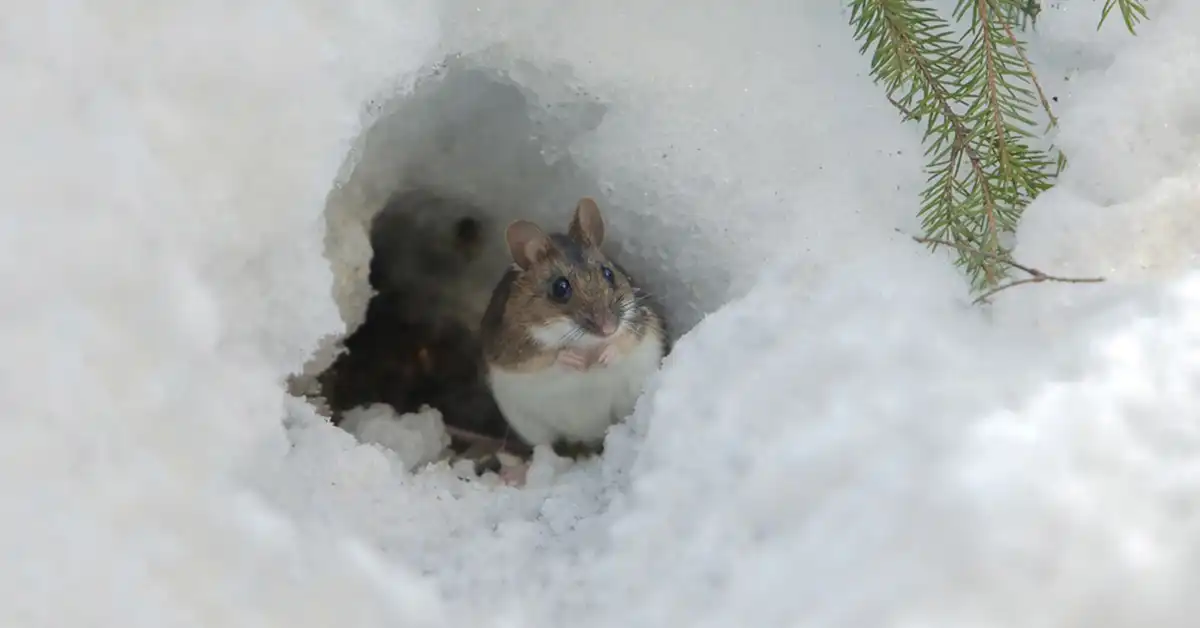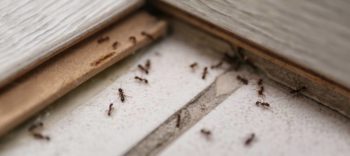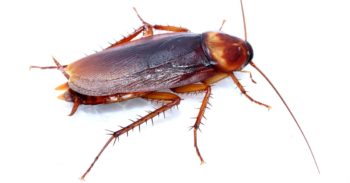
People often think of pests as a warm weather thing, but insects and rodents seek warm places to hide when temperatures drop. Pest control is needed just as much in the winter as it is in the summer. Good winter pest control not only keeps your home free of the damage and disease rodents and insects can bring, it can also lay the groundwork for a good spring.
Do Pests Die or Hibernate in the Winter?
Whether a pest hibernates or dies in the winter depends upon the species. Mice, rats and tree squirrels stay active in the winter, and that includes seeking warm hiding places like your home. Rodents like chipmunks and groundhogs do hibernate in the winter.
For insects, it not only varies by species but by gender or subcategory. For example, female mosquitoes store fat for the winter and enter a phase called diapause that is akin to hibernation. Males mosquitoes do die off in the fall.
Bees do something similar. The queen will stay in the center with the hive clustered around her vibrating or shivering. That motion generates warmth, sometimes up to 90 degrees, with the bees rotating positions so the ones on the outermost layer change and so they can all eat honey as needed to maintain their energy.
What Kind of Pests Winter in Your Home?
As for pests that want to use your home as a winter hiding place, the potential list is long. The most likely culprits include:
Spiders
Spiders might be in your home all year round but, in the winter, they may lay eggs. If so, come spring, you’re going to have a lot of them. While most species will leave you alone, they’re still house guests you do not want.
Stinkbugs
Plant-eating stinkbugs start looking for a warm spot in the fall and can select a crack or hole in your walls. When they emerge in the spring – or during an unseasonably warm period in winter – they tend to swarm on walls or windows looking for a way out. Just don’t crush them or you’ll learn why this beetle is called a stinkbug.
Termites
While people think of termites in the spring when they swarm, they’re actually active all year round. If you think termites might have infested your home, contact an exterminator like us right away before they can do more damage to your home.
Carpenter Ants
If the occasional winged carpenter ant ends up inside your home in the summer, it could be a fluke. Finding one in the fall or winter is virtually always an indication of an infestation.
Mice
Mice can fit through a hole as small as a nickel, sometimes even a dime, so if there’s a hole in your foundation, window frames, etc., they could get in. Once they have found a warm hiding spot, they’re likely to breed too.
Cockroaches
Well known for being survivors, cockroaches can deal with cold temperatures but your warm house with lots of potential food sources is very attractive in the winter.
Bed Bugs
Bed bugs don’t really care about weather. They can survive for up to a year without food and in all temperatures. They don’t care about what food crumbs you might leave behind because they feed off you, so bed bugs are as much of an issue in winter as they are the rest of the year.
Plant Pests
If you bring outdoor plants indoors, they can bring with them pests like aphids, gnats, mealybugs, spider mites, earwigs, etc. with them. While those insects mostly leave humans alone, they can spread to your other houseplants and be a problem. Be sure to also check the firewood you bring in for insects.
Arrow Is Available All Year Round
Regardless of the time of year, if you think you have an infestation of any kind, call in right away. The sooner you contact us then the sooner we can help you live in a critter-free environment. To get started, contact Arrow Exterminating today.




